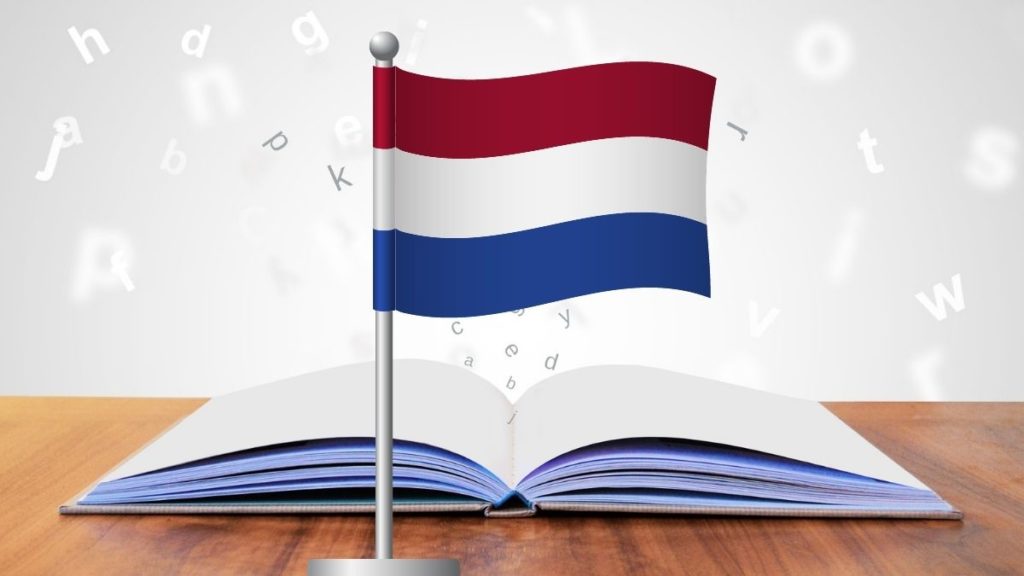Many people think learning a language is hard but how hard is it to learn Dutch?
Let’s take a look at all the reasons why people think Dutch is hard to learn and how you can make it easier.
We’ll also discuss how long it takes to learn Dutch for an English speaker.
Table of Contents
Is Dutch Hard To Learn?

No, Dutch isn’t hard to learn and is actually one of the easiest languages to learn for a native English speaker.
The Foreign Service Institute has spent decades teaching foreign languages and over the years has ranked them in terms of difficulty.
The categories start from category I, which includes easy languages like French and Spanish, and go to category IV, which includes super hard languages like Mandarin Chinese and Japanese.
Dutch falls within category I in terms of difficulty. This means that Dutch is just as easy to learn as French and Spanish and will be easier to learn than German. It will also be much easier to learn than Chinese or Japanese.
What Makes Learning Dutch Hard?

Whilst there are things you can do which makes Dutch easier to learn (discussed later), Dutch does have some features that make it hard to learn.
I’ve discussed the main ones below.
Dutch Has 2 Words For ‘The’
One thing that makes English easy is that there is just one word for the definite article ‘the’. The word ‘the’ can be used in every situation and you never have to worry about picking the right one.
Something that many language learners find tough about Dutch is that it has 2 words for ‘the’ – de and het. You’ll need to learn the difference between them and know when to use each one.
You will have to memorize each noun along with either ‘het’ or ‘de’.
Word Order Can Be Confusing
Whilst Dutch grammar is generally quite similar to English, one thing to note is that often verbs are put at the end of the sentence but not always.
There is no standard word order in Dutch and it varies a lot.
This can take some time to get used to and you’ll have to learn when the verb comes at the end and when it doesn’t.
Pronunciation Is Hard
Dutch learners often find pronunciation one of the hardest parts of learning Dutch.
Words have a lot of ‘gghhhh’ sounds and rolling of letters which is just not natural for a native English speaker.
Words often look like they have lots of consonants next to each other that a native English speaker wouldn’t know how to pronounce.
E.g. the word ‘verschrikkelijk’ means ‘terrible’. Try and pronounce it then click here to hear the correct pronunciation.
Some other difficult words include ‘angstschreeuw‘ and ‘slechtstschrijvend‘.
Dutch People Speak English
It can be difficult to practice the Dutch language with native speakers due to their proficiency in English.
In the Netherlands, the vast majority of the population (90 – 93%) speak English proficiently.
Dutch people tend to switch to English when they realise that you’re not Dutch so it can be difficult to practice.
The best thing to do is persevere and keep speaking in Dutch even if they switch to English.
Dutch Has Many Irregular Verbs
Unfortunately, the Dutch language has many irregular verbs. You can learn the standard rules but often you’ll find the most common verbs don’t fit the rules.
This means you’ll have to memorize each individual verb and the different conjugations of each.
For example, ‘kopen’ means ‘to buy’ and ‘ik kocht’ is ‘I bought’. ‘Lopen’ means ‘to walk’ however ‘ik liep’ means ‘I walked’.
What Makes Learning Dutch Easier?

There are a few things that do actually make learning Dutch much easier. I’ve summarised them all below.
Language Families
English and Dutch are both part of the Indo-European language family. The 2 languages both fall under the West Germanic branch of this family along with German.
As Dutch and English are part of the same language family this means they both descended from the same ancestral language known as the Proto-Indo-European language.
The two languages are actually very closely related, in fact, Dutch is the closest related major language to English.
Learning languages from the same language family tends to be easier as these languages share many similar characteristics with one another.
The similarities vary between languages but can include vocabulary, word order, grammar, pronunciation and word composition.
Similar Grammar
When learning a new language, grammar is usually one of the hardest parts.
Luckily, Dutch and English have a very similar grammatical structure which should make learning it much easier.
As an example, the phrase ‘Ik heb een probleem’ means ‘I have a problem’. You can directly translate each word into Dutch to translate the sentence – Ik = I, heb – have, een = a, probleem = problem.
The grammatical structure tends to mimic the English so you’ll find formulating sentences easy once you’ve learnt some vocabulary.
Dutch is also quite similar to German but is actually easier than German as it has just 2 genders and no cases!
The Alphabet Is Familiar
One thing that will be familiar to you is the Dutch alphabet. Luckily, Dutch uses the exact same alphabet as English so you don’t have to spend hours learning a new script.
The pronunciation of the letters does vary slightly so you’ll have to learn this.
Here’s some sample Dutch text:
Alle mensen worden vrij en gelijk in waardigheid en rechten geboren. Zij zijn begiftigd met verstand en geweten, en behoren zich jegens elkander in een geest van broederschap te gedragen.
Similar Vocabulary
As English and Dutch both evolved from the same ancestral language, naturally they have many words which look and sound very similar.
This makes the language learning process much easier as when you see a new word, you will often be able to guess it’s meaning.
Here’s some examples:
- Tomato – Tomaat
- House – Huis
- Apple – Appel
- Blue – Blauw
- Soup – Soep
- Bed – Bed
- Paper – Papier
- Glass – Glas
- Bread – Brood
- Sock – Sok
- Bus – Bus
- Banana – Banaan
In fact, over 1,500 Dutch words are in the English dictionary so you automatically already know 1,500 Dutch words!
How You Can Learn Dutch Easily

Learning Dutch is made much easier with good quality courses and resources. Below I’ve listed the best ones which will make learning Dutch easy!
Pimsleur Dutch
Pimsleur is a fantastic audio course that will get you speaking from day 1.
This course is perfect for anyone who wants to focus on being able to speak the language (rather than reading and writing).
You can try Pimsleur Dutch for free to see if you like it.
Glossika
Glossika is a great resource for building up vocabulary and learning to speak the language fluently.
The best thing about the Glossika Dutch course is that it helps you to acquire the language (rather than memorizing).
It’s a fun, easy and effective way to learn Dutch.
Dutch Textbook
If you’re looking for a standard textbook to help you with Dutch then the Essential Dutch Grammar book is one of the best out there.
If you also want to be able to read and write in Dutch then you’ll need a textbook like this one.
It’s a great reference point and explains the language in clear, easy to understand terms.
How Long Does It Take To Learn Dutch For An English Speaker?

On average it would take about 600 – 750 hours or 24 – 30 weeks to learn Dutch for an English speaker.
This is based on the language classification system created by the Foreign Service Institute.
The Foregin Service Institute has several language categories that categorize how long it takes for a student to reach ‘professional working proficiency’ in a language.
They have put Dutch into category I which they describe as ‘languages more similar to English’.
Other languages that fall into this category include French, Spanish, Italian and many more.
600 – 750 hours or 24 – 30 weeks is the average time that it takes students to learn to speak Dutch, however this can vary depending on many factors.
This assumes you do 25 hours of studying a week. If you’re not able to dedicate this much time to learning Dutch it may take you longer.
Is Dutch Worth Learning?

The answer to whether Dutch is worth learning is really up to you.
As I mentioned previously, it would take you roughly 600 – 750 hours or 24 – 30 weeks to learn Dutch. This is a lot of time and effort and you have to have a lot of motivation and discipline to achieve this.
If you do decide to learn Dutch you will get a lot out of it.
Dutch is spoken by around 23 million people around the world, mainly in the Netherlands, Belgium and Suriname.
By learning Dutch you would be able to communicate with 23 million people and enjoy their vibrant and interesting culture. This can range from movies, TV shows, music, books and much more.
Related: Is Dutch A Dying Language?
If you’re interested in learning Dutch why not start by learning how to say hello in Dutch.
Check out our other Dutch content here.
Related Posts:
